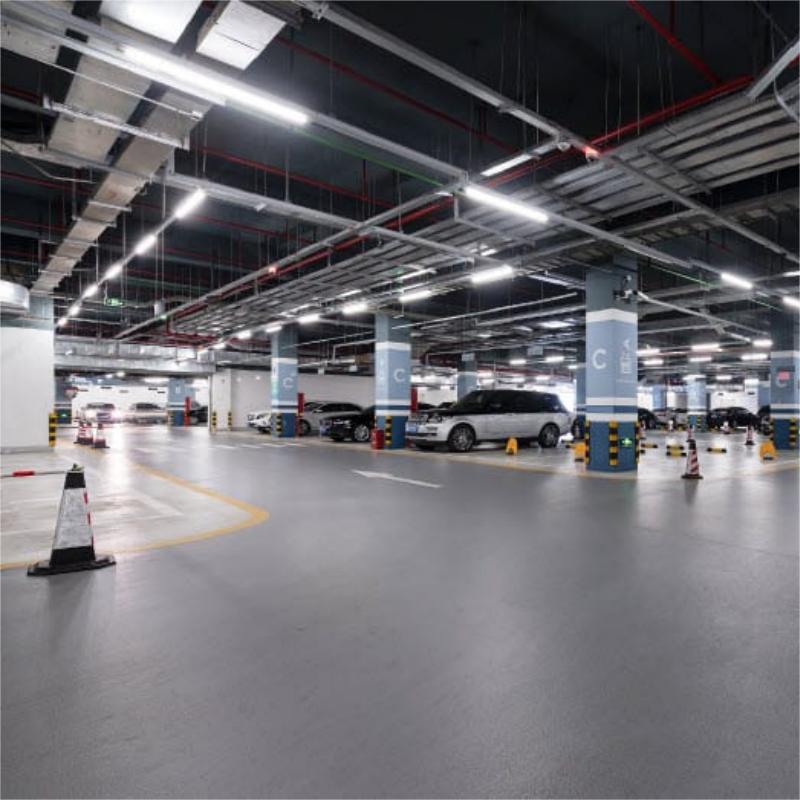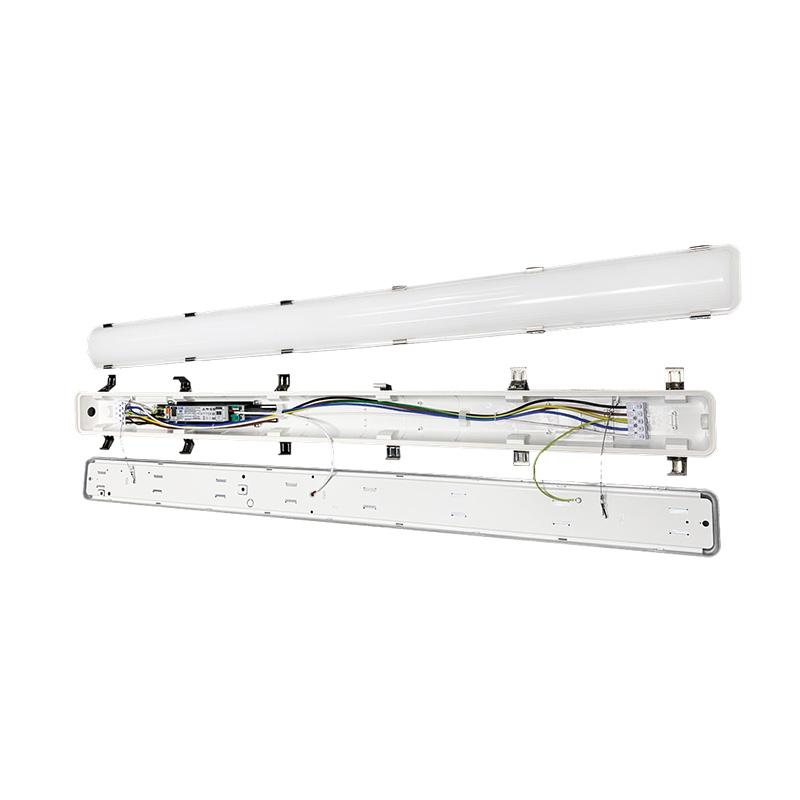LED batten lights, including the TUBU IP66 LED Batten Light, do generate a certain amount of heat when in operation, but usually not to the point where “heat” is a concern. This is due to the fact that LED (Light Emitting Diode) technology is more energy efficient and generates less heat than traditional lighting technologies such as incandescent or fluorescent lamps. The following is a detailed analysis of the heat generated by LED batten lights, taking into account the characteristics of the TUBU IP66 LED Batten Light.


Causes of Heat Generation of LED Batten Light
Electrical Energy Conversion - As LEDs convert electrical energy into light energy, some of the energy is dissipated in the form of heat. However, compared to incandescent bulbs, LEDs are much more efficient in their conversion and therefore generate relatively less heat.
Current Passage - When current passes through an LED chip, a certain amount of resistive heat is generated. However, modern LED technology reduces this heat generation by optimizing materials and design.
Thermal Design of LED Batten Light
Efficient Heat Dissipation Material - TUBU IP66 LED Batten Light utilizes high quality PC (Polycarbonate) material for the lamp body, which not only has excellent light transmittance, but also has certain heat dissipation properties.
Structural Design - LED batten lights are usually designed with heat dissipation fins or channels to increase surface area and improve heat dissipation efficiency. While the specific heat dissipation design may vary from product to product, most LED batten lights focus on heat dissipation performance.
LED Batten Light Operating Temperature and Environment
Operating Temperature Range - According to the provided parameters, the TUBU IP66 LED Batten Light has an operating temperature range of -20°C to +40°C. This is a good indication that the light is capable of operating in a wide range of temperatures. This indicates that the light is able to operate properly over a wide range of temperatures and also shows that it is heat resistant.
Environmental Adaptability - The IP66 rating means that the light is well protected against dust and water, making it suitable for use in a variety of harsh environments. The design also helps to minimize overheating issues caused by environmental factors.
Safety and Longevity of the LED Batten Light
Thermal Protection - Although LED batten lights generate heat when in operation, modern products are usually equipped with a thermal protection mechanism to prevent damage due to overheating.
Long Lifespan - The long lifespan of LEDs is also one of its advantages. With relatively less heat generation, the life of the LED chip and driver circuit is extended. The TUBU IP66 LED Batten Light has a life expectancy of L70 > 54,000 hours (at Ta 40°C), which is further proof of its stability and durability.
LED batten lights, including the TUBU IP66 LED Batten Light, do generate a certain amount of heat during operation, but due to their highly efficient energy conversion, excellent heat dissipation design, and overheating protection mechanism, this heat usually does not have a significant impact on the light's performance and lifespan. Therefore, users can use these products without worrying too much about heat generation.
